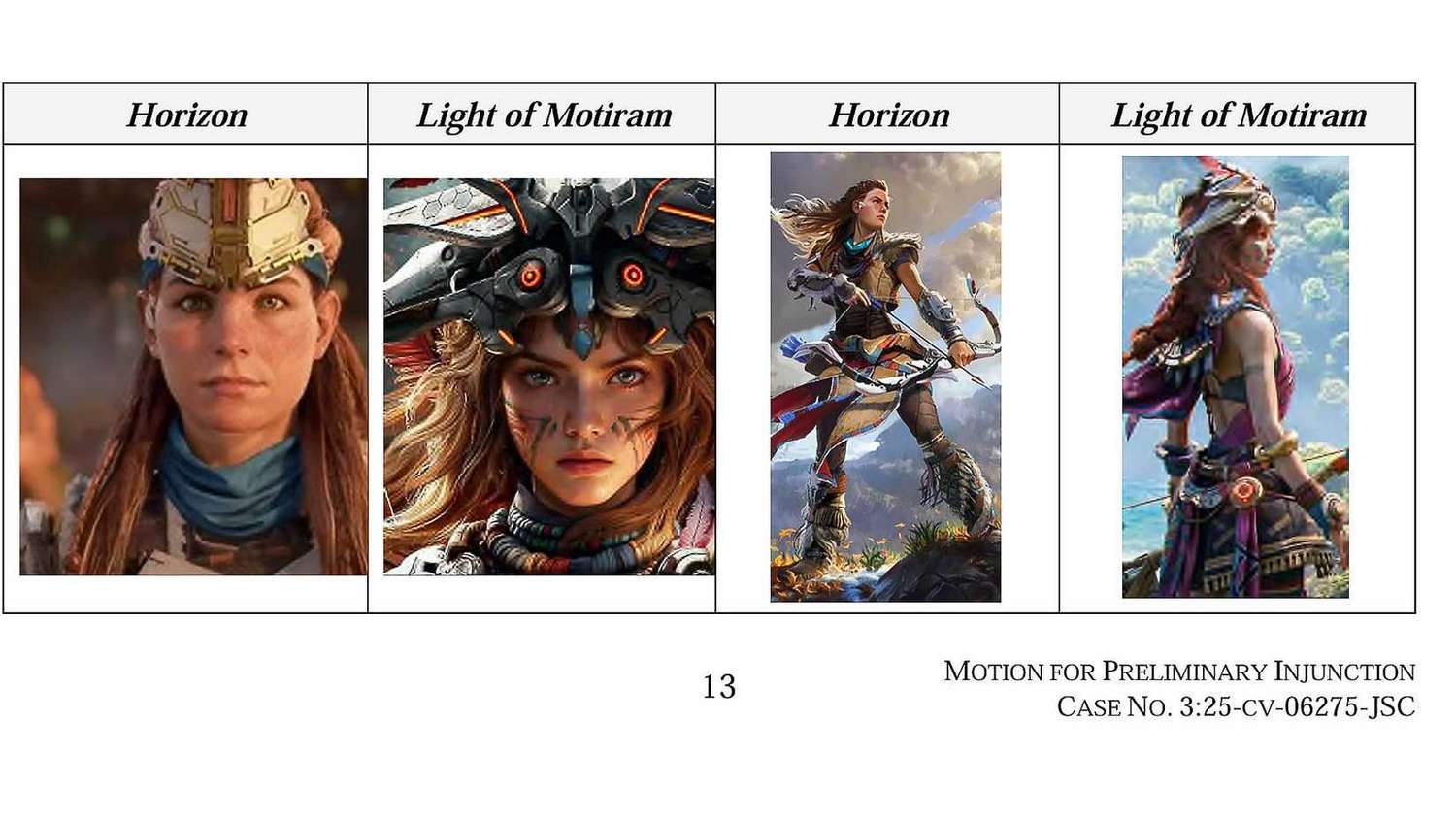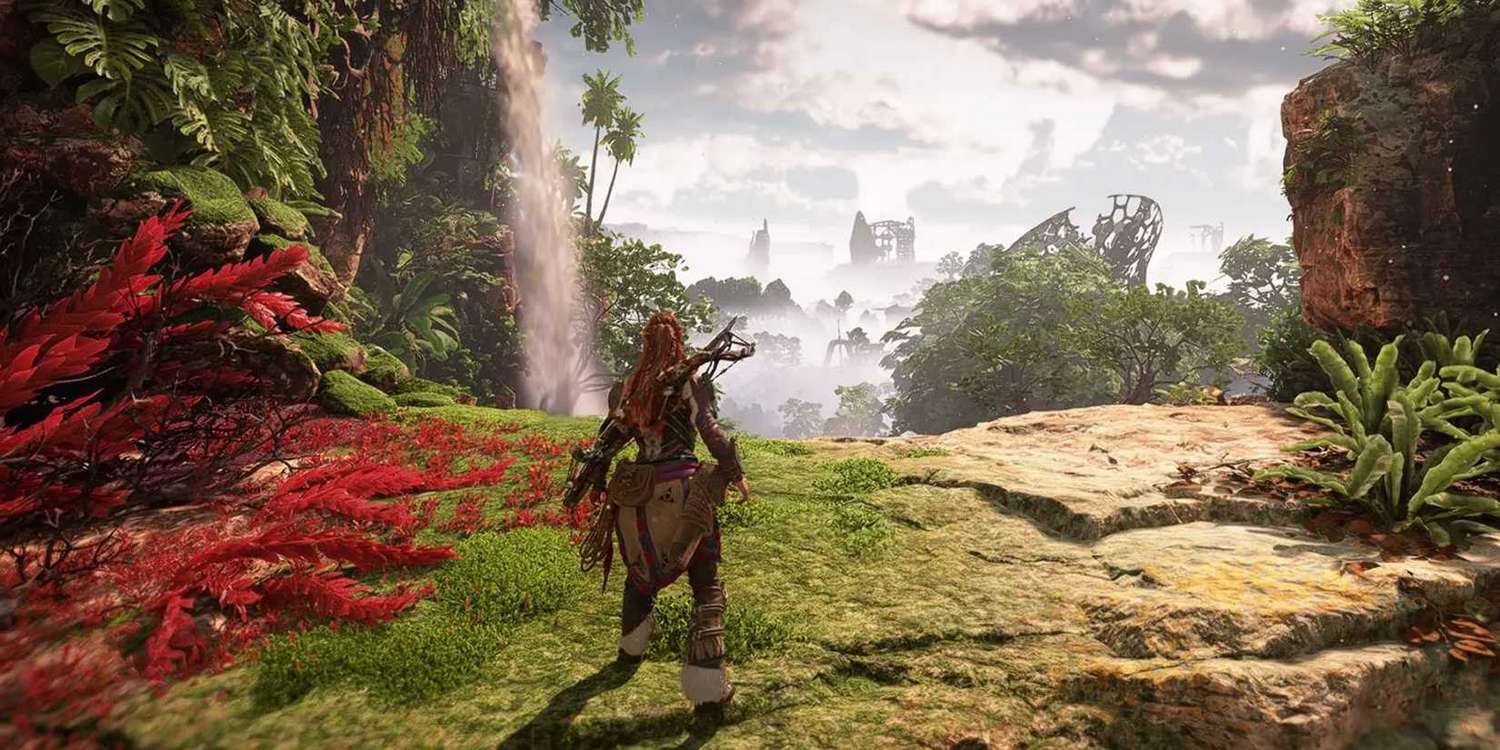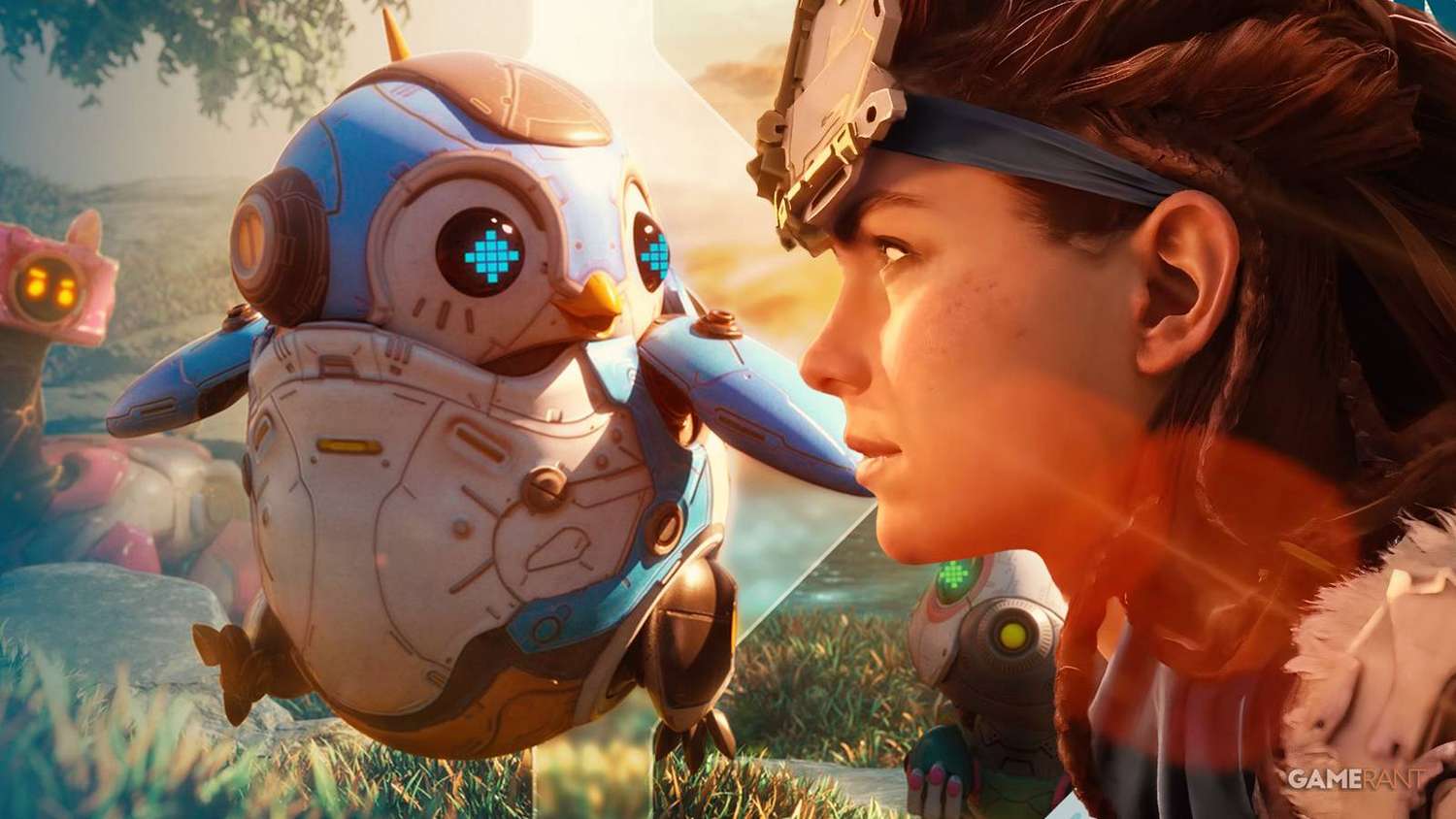Sony Escalates Legal Battle, Seeks Preliminary Injunction Against Tencent Over Horizon Zero Dawn “Slavish Clone”
Popular Now
 Stumble Guys
Stumble Guys
 Genshin Impact
Genshin Impact
 Brawl Stars
Brawl Stars
 FIFA 23
FIFA 23
 Grand Theft Auto V
Grand Theft Auto V
 Roblox
Roblox
 CarX Street
CarX Street
 Minecraft
Minecraft
 Toca Boca World
Toca Boca World
 R.E.P.O
R.E.P.O 
In a significant escalation of its high-stakes copyright and trademark infringement lawsuit, Sony Interactive Entertainment (SIE) has filed a motion for a preliminary injunction against Chinese tech behemoth Tencent (and its subsidiaries, including Polaris Quest), aiming to halt the promotion and development of Tencent’s upcoming open-world survival game, Light of Motiram. Sony asserts that the game is a blatant and “slavish clone” of its flagship PlayStation franchise, Horizon Zero Dawn and Horizon Forbidden West, and that the damage to the Horizon brand is already being felt.
Key Legal Battlegrounds: Copyright, Trademark, and Irreparable Harm
The initial lawsuit, filed in July 2025 in the U.S. District Court for the Northern District of California, outlined numerous similarities between the two titles, focusing on the distinct, protected elements of the Horizon intellectual property (IP). Tencent had previously responded with a motion to dismiss, arguing that Light of Motiram merely utilizes “well-trodden” tropes common in the open-world adventure games and survival games genre, such as a post-apocalyptic setting and a female protagonist.
Sony’s latest filing for an immediate preliminary injunction refutes Tencent’s defense as “nonsense,” asserting that the similarities go far beyond genre conventions. The primary targets of the injunction request are highly specific and focus on elements that allegedly infringe upon SIE’s copyright and trademark rights:
- The Protagonist: A red-haired tribal warrior huntress allegedly resembling Horizon’s iconic lead, Aloy, a character Sony claims is a key icon and symbol of the PlayStation brand.
- Visual and Narrative Elements: Other distinct visuals, storyline elements, and marketing materials that echo the post-apocalyptic world overrun by sophisticated machine creatures.
- Musical Score: A melody used in promotional trailers for Light of Motiram that is alleged to be highly similar to two compositions from the Horizon Zero Dawn original soundtrack (OST), including the main theme.
Sony Insists “The Damage Is Done” Despite Release Delay
A critical point of contention in the legal maneuvering is the release timeline. Shortly after Sony’s initial lawsuit was filed, Tencent quietly updated the game’s Steam page, pushing the expected launch from late 2025 to Q4 2027 and simultaneously scrubbing various screenshots and artwork that had originally drawn public comparisons to Horizon.
Tencent has argued that this significant delay in the game’s launch date negates Sony’s claim of an “immediate threatened injury,” a prerequisite for granting a preliminary injunction. However, Sony’s legal team argues the contrary, stating that Tencent is “playing a shell game” to avoid liability and that the consumer confusion and irreparable harm to the Horizon franchise are already occurring.
Implications for the Multi-Billion Dollar Horizon Franchise
The lawsuit comes at a sensitive time for the Horizon franchise. Sworn declarations filed by Sony and Guerrilla Games executives as part of the injunction request reveal the company’s current expansion plans, emphasizing the strategic importance of protecting the brand’s integrity.
- Film Adaptation: A declaration by Head of PlayStation Productions, Asad Qizilbash, confirmed that the highly anticipated Horizon Zero Dawn film adaptation is moving forward, with a working script in place and filming expected to begin in 2026 for a potential 2027 release. Aloy is cited as a “key icon” in this cinematic project.
- IP Dilution: Sony maintains that the promotion of a near-identical “knock-off” game directly jeopardizes the success of its existing and future projects, including potential new Horizon video games and the wider push of the franchise into a multi-media IP, thereby impacting its profitability and the high advertising revenue associated with the brand.
“The copying was so egregious that numerous journalists and Horizon fans called Light of Motiram ‘a major Horizon rip off,’ ‘an obvious knock off,’ a ‘copycat’ with a main character that ‘resembles Aloy to a tee,’ and ‘extremely similar to Horizon Zero Dawn,’” the court filing argues (Source: Multiple legal filings and news reports). This public perception, Sony contends, is evidence of the harm being caused.
 What’s Next for the Major Gaming Industry Lawsuit?
What’s Next for the Major Gaming Industry Lawsuit?
Judge Jacqueline Scott Corley is scheduled to hear arguments on Sony’s motion for a preliminary injunction in November 2025. A decision in favor of Sony could force Tencent to immediately cease all promotional activities for Light of Motiram and potentially mandate a redesign of the game’s central character and other allegedly infringing elements until the full copyright infringement case is resolved. Conversely, a rejection of the injunction would allow Tencent to continue its current development and promotional trajectory.
The outcome of this landmark legal battle will have far-reaching implications, not just for the AAA gaming industry and the giants involved—Sony and Tencent, two of the world’s most valuable game publishers—but also for how courts interpret the protection of unique aesthetic and character design in the rapidly evolving and highly competitive landscape of video game development. Industry analysts are closely watching to see how this ruling will set a precedent for protecting game IP from alleged intellectual property theft and establishing the boundaries between acceptable inspiration and unlawful imitation.










 What’s Next for the Major Gaming Industry Lawsuit?
What’s Next for the Major Gaming Industry Lawsuit?